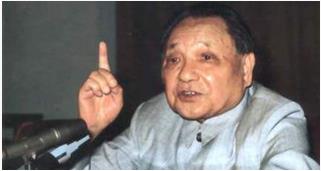 In July 2012, the Open University of China (OUC) was unveiled at the Great Hall of the People in Beijing.
In July 2012, the Open University of China (OUC) was unveiled at the Great Hall of the People in Beijing.
The OUC, whose predecessor was China Central Radio and TV University, has developed alongside reform and opening up, and is dedicated to promoting equal access to education and in shaping a culture of lifelong learning for all. Now, 38 years have passed and the establishment of the OUC has changed the educational pattern of China, all thanks to one man named Deng Xiaoping.
October 1976 saw the end of the ten-year devastation of the Cultural Revolution. China’s economy was on the edge of collapse and education, culture, and science and technology had been badly impacted.
For ten years, an entire generation lost their chance at higher education and the society was experiencing a serious shortage of talented professionals. Against the historical background at that time, talent was one of the most essential problems to be solved to restore national economic development and drive the construction of socialist modernisation.
In July 1977, Deng Xiaoping returned to power and volunteered to be responsible for education, science, and technology. On 4th August, 1977, a symposium on science and education was held at his proposal. More than 40 experts and officials from educational circles, including Zhou Peiyuan, Tong Dizhou, and Su Buqing, discussed education in the Great Hall of the People.
After listening to the educational experts’ speeches, Deng Xiaoping gave his opinions: “The unified college entrance examination will be resumed this year.” About 5.7 million students sat for that year’s college entrance examination. However, only about 270,000 students were admitted, as the scale of enrolment was greatly restricted due to the small number of universities and limited conditions at the time. The remaining 5.4 million students who were eager to receive higher education had to keep waiting.
At the end of 1977, Deng Xiaoping met former UK Prime Minister Sir Edward Heath during his visit to China. He was greatly interested in the experiences Sir Edward Heath shared, including using modern means to run open universities so more people can go to university. Furthermore, he indicated that China should use television to accelerate the development of education.
In line with Deng Xiaoping’s instructions, the relevant central departments rapidly set up a special leading group to prepare for the establishment of the radio and TV university. Vice premier Fang Yi of the State Council said at the later National Conference on Science and the First Meeting on the Establishment of the Radio and TV University that positive efforts had to be made to run the TV university; and that modern means had to be used to raise the scientific and cultural level of the whole nation.
In April 1978, at the National Working Conference on Education, Deng Xiaoping pointed out, that: “We should not only tend to the short-term needs but also anticipate the long-term needs; not only consider the development needs of production and construction but also attempt to predict the development trends of modern science and technology.” He also said that it was necessary to “study the development of various kinds of higher education schools” and “work out measures to speed up the development of TV, radio, and other modern educational means. This is a valuable means of developing an educational undertaking with greater, faster, better, and more economical results.”
Thanks to Deng Xiaoping’s great initiative, amazing progress was made in the preparation for the establishment of the radio and TV university. A document formally issued in January 1979 said that: “The operation of the radio and TV university is a new part of the development of higher education in China and will play a significant role in expanding the scale of higher education, raising the scientific and cultural level of the masses, and accelerating the cultivation of a host of socialist-minded and professionally competent personnel.” In the meantime, all the provinces, municipalities, autonomous regions, and relevant central departments were asked “to render great support to the preparation of the establishment of the radio and TV university, to effectively solve any problems and review their experience in an effort to run well the radio and TV university.”
On 6 February, 1979, China Central Radio and TV University (CCRTVU) together with 28 provincial level radio and TV universities declared their establishment and their grand opening ceremonies were held after a just over a year of efficient preparation efforts.
The past 30+ years have witnessed the arduous transformation of the radio and TV universities, formulating a school network including the CCRTVU, 44 provincial level RTVUs, nearly 1,000 prefecture-level branches, and nearly 2,000 at county-level branches. The number of active students has reached several million, the largest in the world.
Over decades of development, the RTVUs have trained a large number of talented professionals for China’s economic construction and social development, provided a great many learners with the opportunity to receive higher education, and made great contributions to improving the quality and capacity of the masses of workers. The educational network covers all urban and rural areas across China and the information technology system has laid a solid foundation for future transformation.
In July 2012, the OUC was inaugurated in the Great Hall of the People, opening a new chapter of its development. A new type of university, without boundaries of time and space, prioritising both degree and non-degree continuing education, integrating information technology and education, and gathering and sharing quality education, has thus appeared before the world.

(This article is written based on relevant materials in China Higher Education.)
By Yan Jingzhen, www.china.org.cn